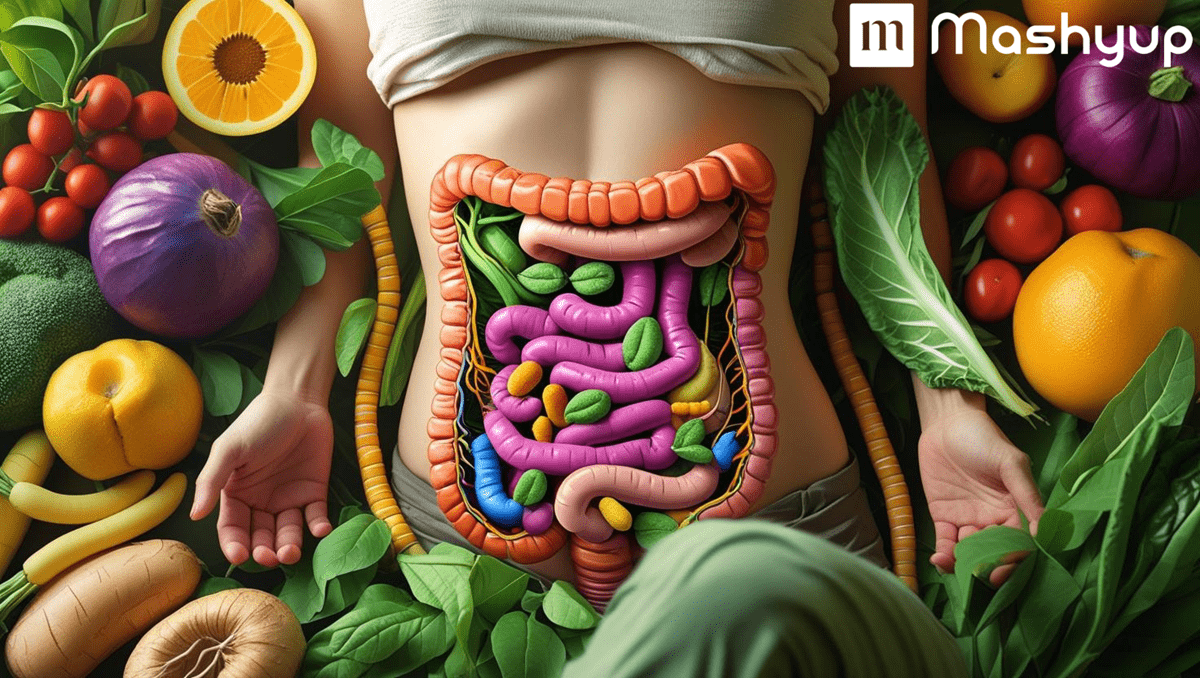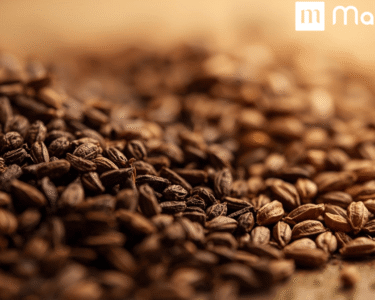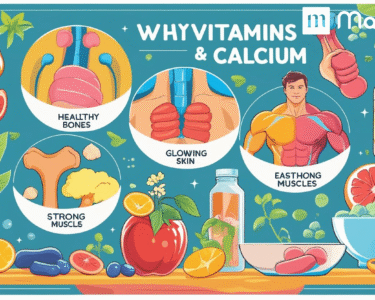The foundation of wellness in general is a healthy digestive system. Your digestion affects everything, including immunity, energy levels, skin, and even mood, from breaking down food to absorbing nutrients and getting rid of waste.
If you frequently experience bloating, constipation, or sluggishness after meals, it’s time to give your stomach the attention it needs. In this article, we’ll look at easy yet powerful ways to enhance digestion without the need for prescription drugs.
1. Make Sure You Eat Fiber Rich Food
You can assume fiber to be the unsung hero in enhancing the digestive system of your body. It’s solely responsible for adding bulk in your stool, regular bowel movements and feeding the good bacteria in your gut. If you are constipated, indulging in fiber fiber-rich diet can be an excellent natural remedy for digestion. Let’s further learn about the types of fiber required by the body and what benefits they give to our body.
Types of Fiber :
- Soluble Fiber: This category includes fiber present in oats, apples, chia seeds etc. Soluble fiber helps in softening the stool, easing bowel movements.
- Insoluble Fiber : This category includes fiber present in whole grains, carrots, leafy greens etc. This category promotes bowel movement and helps in better digestion.
Pro Tip: Aim for 25-30 grams of fiber per day. Make sure your source is whole food and not supplements.
2. Chew Your Food Properly
A simple yet prominent point in improving digestion. Chewing initiates the digestive process by mixing food with saliva. Saliva contains digestive enzymes that get activated once you start chewing your food.
If you don’t chew your food properly, thenthe stomach or the intestines have to put double efforts to digest your food.
Some tips to chew food properly
- Avoid any kind of distraction during eating food for example : stay away from mobile phones and television.
- Chew each bite atleast 20 to 30 times
- Savor each bite that you take for it triggers enzyme release in the body.
3. Stay Hydrated Always
Water is an essential element that helps break down the food effectively. It also helps in moving the waste through the intestines. Less intake of water could dehydrate your body and could lead to bloating, poor digestion and constipation.
How much Water Should you drink in a day
Try to intake at least 8 to 10 glasses of water in a day. Although if you consume high fiber diet, then this quantity can be increased to avoid blockages.
4. Avoid Overeating
Overeating can be more harmful than you even think. It can stretch your stomach while can lower your the digestion as well. Hence, practice portion control for a healthy digestion. It can treat your bloating, digestive issue while can lower down acid reflux in the body too.
Some tips to control portion :
- Stop eating when you are 80% full
- Always use small plates for your meals.
5. Include Probiotics and Fermented Foods for Good Gut Health
Probiotics are indispensable for good gut health. They are live bacteria that support a healthy balance of the gut. They help in reducing inflammation while preventing digestive issues like IBS or gas in stomach. Probiotics also makes sure that your gut properly absorbs all the nutrients in the body.
Let’s learn about the best sources of probiotics:
- Miso
- Kefir
- Kombucha
- Kimchi
- Yogurt with live cultures
6. Exercise Regularly
Indulging in any kind of physical activity can increase blood flow to digestive organs while can reduce the risk of any constipation issues. Having light movement everyday can even keep bloating at bay and reduce the risk of a bad digestive tract.
Exercise that helps with better digestion
- Practice Yoga
- Cycling and swimming
- Brisk walking, especially after meals.
7. Cut Down On Processed Foods And Excess Sugar
Processed foods are often full of preservatives, palm oil, trans fats, and artificial additives. All such items irritate the gut lining while disturbs your digestive system. It harms the microbial balance in gut which doesnot allow the enhancement of good bacteria.
Things to Avoid
- Packed snacks with high sodium content
- Sugary beverages
- Fried food items
- Excessive alcohol
You can replace such unproductive food items with whole foods, fruits, vegetables, seeds, nuts and legumes.
8. Manage Your Stress
A Calm Gut is equal to calm mind. Yes ! you heard that right, there is a strong connection between brain and gut also know as the gut brain axis. This gut brain connection gets disturbed as chronic stress affects gut motility, enzyme secretion, and microbiome balance.
Some Stress reducing techniques include:
- Meditation
- Journaling
- Getting adequate sleep
- Practicing some deep breathing exercise.
9. Have Meals at Consistent Times
Irregular eating disrupts the body’s internal clock and affect your digestion adversely. Also, it is advised to not skip meals for it often leads to overeating later during the day. The cycle of skipping meals and overeating later often stresses your digestive organs disturbing your gut health routine.
Ideal routine for good digestion
- Include healthy snacks in your diet
- Eat atleast 3 balanced meals a day
- Avoid eating late at night.
10. Use Natural Herbs and Spices to Boost Digestion
You may be unaware, but nature has gifted us with a wide range of digestive herbs and spices. You can consume these herbs and spices in the form of teas or in grinded form. Including such digestive aids helps stimulate bile production, soothe the digestive tract and relieve gas.
Top herbs that support digestive support
- Peppermint: Helps in calming the gut muscles
- Turmeric: Reduce any inflammation in the intestines.
- Ginger: Ginger helps a lot if you want to reduce problems like nausea. It aids motility as well.
- Fennel: These herbs help in releasing gas and bloating in the gut.
- Cumin: Cumin actively secretes enzymes and keeps the digestion healthy.
Make Your Digestion a Priority
Improving digestion isn’t about making one drastic change—it’s about adopting small, sustainable habits that nurture your gut over time. You may improve your energy, immunity, mood, and general health by eating a healthy diet, drinking enough water, reducing stress, and exercising.
Your lifestyle has an impact on the health of your stomach. Your digestive system will appreciate you making thoughtful decisions.






